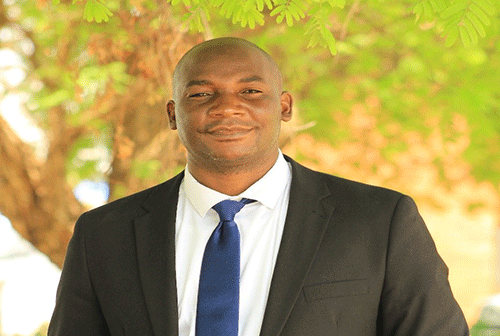Dr Kennedy Kaumba Mabuku
In my formative years within the security fraternity, the mission of protecting Namibia’s territorial integrity revolved primarily around land-based security concerns, with scant attention paid to the indispensable role of space security in ensuring our nation’s resilience and the prosperity of humanity as a whole.
As a nation emerging onto the global stage with ambitions for technological advancement and economic growth, Namibia is increasingly turning its scrutiny skyward, harnessing the power of satellites for telecommunications, weather forecasting and environmental monitoring.
Yet, amidst this journey of exploration and innovation, Namibia faces a pressing challenge: safeguarding its space assets amidst a crowded and ever-evolving
orbital environment.
The possible interference of a single collision that could spell disaster cannot be ruled out; disrupting vital communication networks and impeding the nation’s progress may be the end-products of unguarded space.
Moreover, the spectre of cyberattacks targeting satellite systems adds another layer of complexity to Namibia’s space endeavours. Furthermore, as satellites become indispensable for vital functions such as telecommunications, navigation and security concern surveillance, we cannot exclude the possibility
that they will become attractive targets for cyberattacks.
Against this backdrop, security institutions become guardians of Namibian space assets. Tasked with safeguarding the nation’s interests and ensuring the security of its
assets, security institutions play a crucial role in addressing the challenges of space insecurity.
Security institutions are instrumental in fostering collaboration among nations to track wreckage, develop removal technologies, and promote responsible disposal practices to mitigate this threat.
The accelerated interest in
space security should be due to the existing interplay between space security threats and the earthly integrity of a nation that extends far beyond conventional boundaries, requiring an understanding that transcends traditional security paradigms.
This is evident in an era where satellites play a pivotal role in critical infrastructure, including communication networks, navigation systems, and military surveillance, and disruptions in
space can have profound repercussions on land security and territorial integrity.
This provides some explanation as to why a cyberattack targeting satellite systems could compromise communications vital to national defence, hinder emergency
response efforts, or disrupt essential services, thereby undermining the very fabric of a nation’s security apparatus.
Moreover, it is almost certain that the proliferation of space wreckages poses tangible risks to terrestrial assets, as collisions in orbit can generate debris that may re-enter the Earth’s atmosphere, potentially causing damage to infrastructure or endangering
civilian populations.
While the aforementioned observation may hold true, the crux of the matter lies in three fundamental questions: firstly, do security institutions possess the requisite technology and expertise to effectively address contemporary space security concerns? Secondly, do they have access to ongoing refresher training programmes to keep abreast of evolving threats and technologies in this domain?
And thirdly, are there sufficient resources allocated to support comprehensive space security initiatives within these institutions? Therefore, the latter may be
answered depending on the priority of the nations.
This implies that nations that solely prioritise land security as the primary determinant of their
overall security posture often
overlook the multidimensional security landscape, which extends far beyond geographical
boundaries. This limited
perspective fails to account for the complex interconnections between various domains, particularly the increasingly intertwined realms of space and terrestrial security.
By understanding that security challenges transcend mere proximity and encompass a spectrum of interconnected factors, Namibia can better position itself to address emerging threats and safeguard territorial integrity in an ever-changing global landscape.
Informed by the preceding
premises, it becomes apparent that achieving internal security and safeguarding territorial integrity cannot be accomplished without prioritising space security.
Therefore, there is a compelling need for the involvement of all specialised security institutions entrusted with the responsibility of addressing security matters comprehensively.
To conclude, in a world increasingly reliant on space-based assets, the imperative for strong space security measures cannot be overstated.
*Dr Kennedy Kaumba Mabuku shares these thoughts personally, independent of any security institutions. He can be reached at kennedymabuku@yahoo.com or 0814173100



